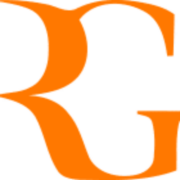Revolutionizing recycling: M&S leads the way with innovative UV technology!
- M&S is the first UK supermarket to use invisible UV tags on milk bottles.
- The tags help track recycling through the system and provide real-time data.
- Developed by Polytag, the technology aims to enhance recycling rates and compliance.
- M&S invested £100,000 in Polytag’s Ecotrace program for a nationwide tag reader network.
- The initiative is part of M&S’s strategy to manage costs under new recycling regulations.
Marks & Spencer (M&S) has made a groundbreaking move by becoming the first supermarket in the UK to implement invisible UV tags on its four-pint milk bottles. This innovative technology, developed by Polytag, aims to improve recycling rates by tracking the bottles throughout the recycling process. Once customers recycle the bottles, the tags can be scanned by Polytag’s plastic detection units, provided the recycling facilities are equipped with this technology. This initiative will allow M&S to access live recycling data and gain real-time insights into the recycling of its single-use plastic packaging. nnPolytag has designed this data system to help M&S accurately track its sustainability goals, enhance the credibility of its recycling claims, and ensure compliance with regulations that mandate companies to manage the recycling of their product packaging waste. The introduction of these UV tags is expected to help M&S reduce costs associated with the Extended Producer Responsibility (EPR) rules through more precise reporting. nnThis launch comes at a critical time for M&S, as it faces a potential £40 million recycling tax due to new packaging levies set to take effect in October. To support this initiative, M&S has invested £100,000 into Polytag’s Ecotrace program, which aims to establish a nationwide network of invisible UV tag readers. Mark Hitschmann, M&S Food’s head of packaging, expressed optimism about gaining valuable insights into the real-world impact of their packaging through this collaboration with Polytag. He emphasized that customers are increasingly concerned about reducing plastic waste, and this initiative will help them make more sustainable shopping choices. Polytag is also collaborating with other retailers, including Waitrose, Co-op, and Aldi, to implement UV tags across their products.
Factuality Level: 8
Factuality Justification: The article provides accurate information about M&S’s implementation of invisible UV tags on milk bottles to track recycling rates and their collaboration with Polytag. It also mentions the investment made by M&S in the Ecotrace programme and other retailers working with Polytag. The article is focused on the main topic without any significant digressions or irrelevant details.
Noise Level: 3
Noise Justification: The article provides relevant information about M&S’s implementation of UV tags on milk bottles to track recycling rates and their collaboration with Polytag. It also mentions other retailers working with Polytag. The article stays on topic and supports its claims with evidence from Mark Hitschmann’s statement. However, it could provide more in-depth analysis or insights into the potential impact of this technology on the industry.
Financial Relevance: Yes
Financial Markets Impacted: No
Financial Rating Justification: The article discusses M&S’s implementation of invisible UV tags on its milk bottles to track recycling rates, which could potentially lower their costs under Extended Producer Responsibility (EPR) rules and reduce a £40m recycling-tax bill. The retailer has invested £100,000 into Polytag’s Ecotrace programme. This shows financial relevance as it involves the company’s sustainability efforts and potential cost savings.
Presence Of Extreme Event: No
Nature Of Extreme Event: No
Impact Rating Of The Extreme Event: No
Extreme Rating Justification: There is no mention of an extreme event in the article.
 www.retailgazette.co.uk
www.retailgazette.co.uk 